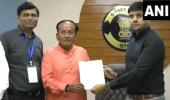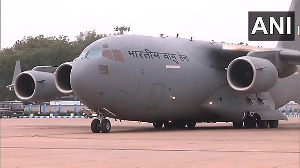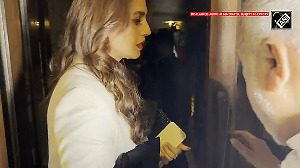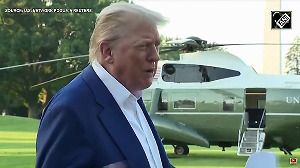When the Bharatiya Janata Party’s Mukesh Dalal was declared elected unopposed to the Lok Sabha from Surat on Monday, he became the first candidate to achieve the feat from Gujarat since its formation 64 years ago though the erstwhile state of Saurashtra saw a similar instance in 1951.
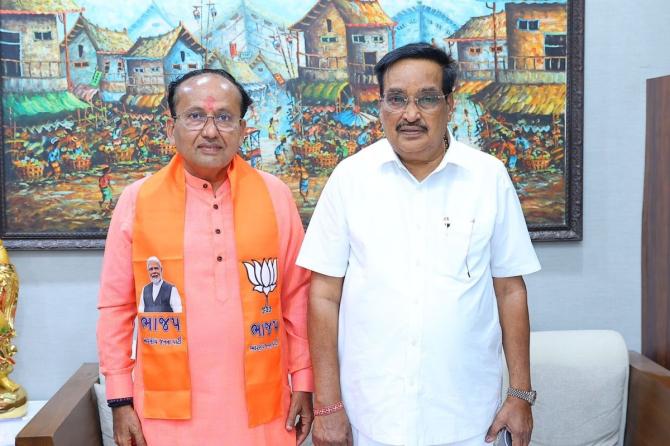
This was also the first time that a candidate of the BJP, formed in April 1980, has entered the Lower House of Parliament without a contest.
When Saurashtra -- now a part of Gujarat -- was a separate state between 1948 and 1956, a Congress candidate was elected uncontested from the then-Halar Lok Sabha seat, Election Commission (EC) data shows.
In the first general elections held in independent India in 1951-52, Major General MS Himatsinhji won the Halar seat in the then-Saurashtra state without a contest. The seat roughly constituted areas of the present-day districts of Jamnagar, Devbhumi Dwarka, Morbi and Rajkot. Saurashtra became a part of Gujarat in 1960.
A descendant of the rulers of the erstwhile state of Nawanagar, Himatsinhji went on to serve as the first deputy defence minister of India and then as the first lieutenant-governor of Himachal Pradesh (which became a full-fledged state in 1971).
BJP contestant Dalal achieved the feat after eight candidates withdrew their nominations on Monday. On Sunday, the nomination of Congress candidate Nilesh Kumbhani was rejected after a preliminary examination revealed inconsistencies in the signatures of proposers, an election official said.
Gujarat, which has 26 Lok Sabha seats, will vote on May 7.
Dalal's achievement comes nearly 35 years after National Conference leader Mohammad Shafi Bhat was elected uncontested from Srinagar in the 1989 Lok Sabha elections. In 2012, Samajwadi Party's Dimple Yadav was elected unopposed from Kannauj in a Lok Sabha bypoll necessitated after her husband Akhilesh Yadav vacated the seat in Uttar Pradesh.
As per data available on the EC website, 25 candidates before Dalal have been elected unopposed to the Lok Sabha since the first elections in 1951, a majority of them from the Indian National Congress.
In 1951, five candidates were elected unopposed, all of them from the Congress. They represented Coimbatore (present-day Tamil Nadu), Rajagada (Odisha), Yadgir (the then-Hyderabad state), Halar (then-Saurashtra state) and Bilaspur (present-day Chhattisgarh).
In the 1957 elections, seven candidates -- three from Andhra Pradesh, and one each from Assam, Madhya Pradesh, Tamil Nadu, and Karnataka -- won unopposed. All the candidates belonged to the Congress party.
Three candidates won the Lok Sabha elections unopposed in 1962, five in 1967, one in 1971, two in 1977, one each in 1980 and 1989. National Conference leader and former Jammu and Kashmir chief minister Farooq Abdullah won from Srinagar uncontested in 1980.
Political observers opined that while winning without contesting is not a good phenomenon in a democracy, certain technical and political compulsions make it unavoidable and one cannot do much about it.
As far as the Surat Lok Sabha constituency is concerned, the BJP won it by a huge margin of more than 5 lakh votes in the last two elections, and winning the seat this time around, too, should not have been a big concern for the saffron party, said political analyst Shirish Kashikar.
"The issue is both technical and political. As an election officer, the Surat district collector rejected the nomination form of the Congress candidate. The Congress party should have taken care to ensure that the proposers were genuine," he noted.
"Voters (in Surat) will be deprived of a choice, but looking at the trend in the last two Lok Sabha polls, when BJP candidates won by handsome margins, there was no big challenge for the BJP there so the issue (of unopposed election) is more technical than political," Kashikar said.
Political scientist Amit Dholakia called the process of candidates getting elected uncontested as "unfortunate" for a democracy.
"Democracy is all about political competition between parties. It is not just about parties but also ideologies and programmes that people choose from. Surat is the second largest city (of Gujarat) after Ahmedabad, and people deserve to have a choice," said Dholakia, political science professor at the Maharaja Sayajirao University, Vadodara.
He said the development dents people's trust in the Congress for the manner in which its candidate filled his nomination form which was eventually rejected.
